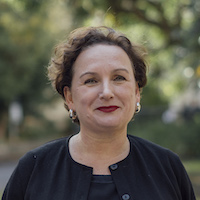Science begins with curiosity. It is the key to understanding and answering the biggest issues we face today.
Our researchers explore the world around us – from the smallest scale to the widest expanses of our universes and everything in between. Through strong industry collaboration and state-of-the-art facilities, we are training the next generation of scientists and finding solutions to the issues that matter most.
Learn about the comprehensive research that makes Science at Melbourne different.
Our faculty at a glance
-
Study with us
With a comprehensive and flexible range of programs, we deliver impactful educational outcomes, underpinned by research, and an inclusive and inspiring student experience. Join our global and collaborative community in search of solutions to today’s most challenging issues.
-
Engage with us
Through school outreach programs, industry engagement, public lectures and events, we share our research and discoveries with our communities. With the help of our friends, supporters and alumni, we can continue being one of Australia's leading scientific teaching and research hubs.
-
Indigenous research, engagement and inclusion
We acknowledge Indigenous Australians as our first scientists with deep and enduring knowledge of our lands, seas and waterways. See how the Faculty of Science is working to lead Indigenous research, engagement and knowledge through a shared endeavour to expand human scientific understanding.

Science is ubiquitous – it’s at the foundation of everything we do, the building blocks of life, and the key to how our future will unfold. Science means pursuing knowledge, following your curiosity and a lifetime of exploration. Moira O'Bryan, Dean, Faculty of Science
Highlight: A healthier planet
Climate change is one of the biggest problems facing our world today. Through extreme weather and increase in natural disasters, our environment, our biodiversity and our communities are at risk. Learn more about our commitment to sustainability and the environment, and the exciting research and work we're doing to get there.
